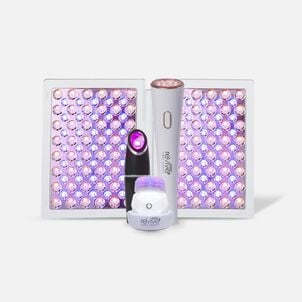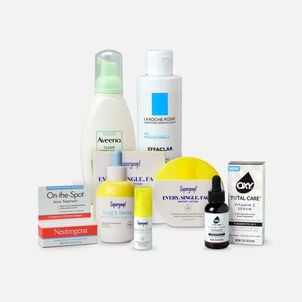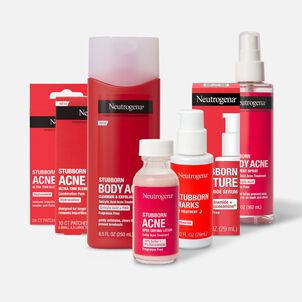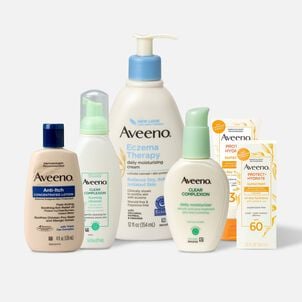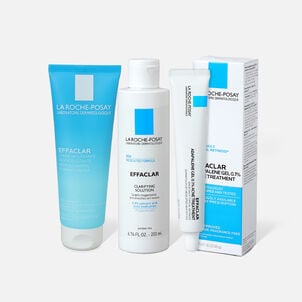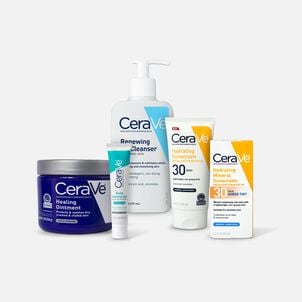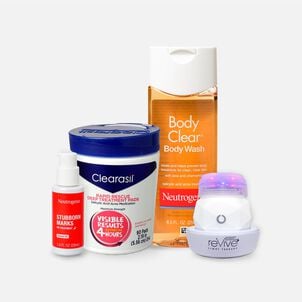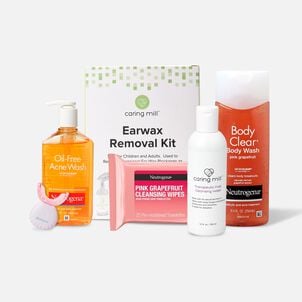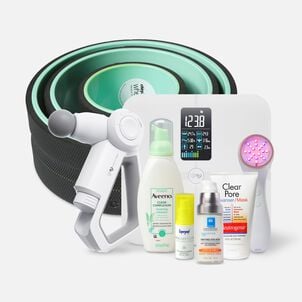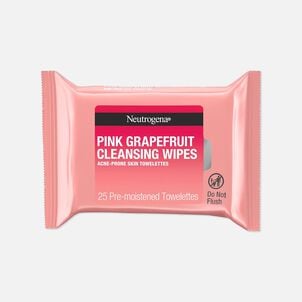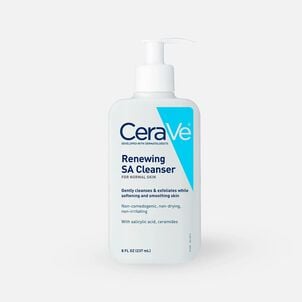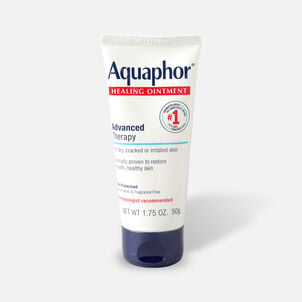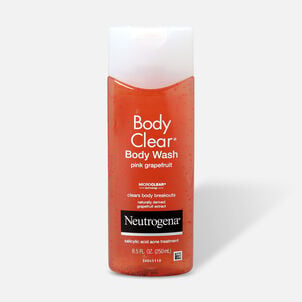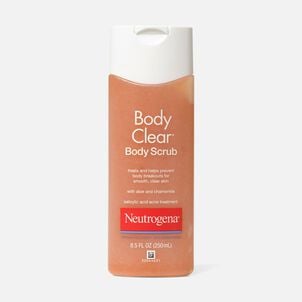What causes oily skin?

Whether you're trying to ward off the sun's damaging rays, hydrating dry skin or battling acne, skin care is truly a year-round job that never takes a day off. But every skin type is different and seasonal changes can bring their own unique challenges, so while there are some tried and true practices that work for everyone, you may have to work a bit harder if you have oily skin.
Why is my skin so oily?
The fact is, everyone's skin produces oil at levels that are determined by genetics, but also outside factors like diet, exercise and more. According to VeryWellHealth, the oily residue that's found on your skin is a substance called sebum, which is produced by the sebaceous glands found underneath each of your pores. And while it may seem like a nuisance, it is actually an important part of your body's physiology. Healthy production of sebum by the skin helps to seal in moisture and prevent skin from overdrying, cracking and chapping.
These sebaceous glands are each attached to a hair follicle, and produce sebum through a process called holocrine secretion. The glands produce sebum within the glands and they are broken once they reach a certain size, allowing the sebum to flow freely into the hair follicle. The hair then naturally spreads the oil onto the skin to lubricate and protect it. Additionally, sebum also has antibacterial properties, and chances are, sebum has prevented you from contracting common colds and viruses thousands of times over during the course of your lifetime.
Oil on your skin is actually a good thing in most cases, but when the production of sebum starts going haywire, whether skin is becoming too oily or not oily enough, that could be the sign of an underlying health condition. Let's dive into what causes oily skin and how you can best take care of your epidermis year-round.
Oily Skin: Conditions, causes and treatments explained
If you have a daily sheen across the surface of your epidermis, you may be wondering how to get rid of oily skin and what causes it in the first place. Remember that aforementioned sebum production that we all have coming out of our pores? Well, for those with excessively oily skin, this means that sebum production is on overdrive. While this can be the sign of an underlying health condition, it can also be caused by numerous factors per Healthline.
1. Weather, Temperature, Humidity
Have you ever noticed that bouts of dry skin tend to lessen during the spring and summer months? That's no accident. Hot, humid climates lead to more oily skin, and sebum production increases in high temperatures.
2. Enlarged Pores
Oil is secreted from pores in your skin, so if your pores are enlarged due to weight gain, acne complications or aging, this could be contributing to bouts of oily skin.
3. Skin Care Products
Finally, your skin care regimen could be having some adverse effects. Heavy creams and other moisturizers, if used improperly, could do more harm than good and may result in excessive oil on the surface of the skin.
Those are just a few of the causes that could cause oily skin, but if you've gone through them all and the issue still persists, the issue could come down to genetics. If your parents or grandparents had oily skin, there's a good chance you will inherit that condition as well!
How to get rid of oily skin
Oily skin may just be a fact of life for some people, but there are some easy ways to keep it at bay and keep your oily shine to a minimum. Here are a few tips from the American Academy of Dermatology:
1. Wash your face!
Washing your face is pivotal to removing surface oil, but be sure to avoid excessive scrubbing that could irritate the skin layers, as well as using gentle soap and water to skip the possibly harmful ingredients in some face washes.
2. Go oil-free skin care
This is an important distinction you need to make now if you have oily skin: oil-free skin care products. Adding skin care products with oil on top of already oily skin is a recipe for clogged pores, acne and other skin imperfections.
3. Upgrade your moisturizer
While it may seem counterintuitive, daily moisturizing is vital to keeping excessive oil on your skin at bay. An oil-free moisturizer will keep your skin hydrated and healthy, and finding one with an SPF of 30 or above with broad-spectrum protection will ensure that your skin is protected from the sun's harmful rays as well. According to Medical News Today, when shopping for a moisturizer, opt for one that has aloe vera as an active ingredient. A 2014 study found that aloe vera can soothe oily skin and moisturize the underlying skin layers without making the skin feel greasy.
4. Avoid pore-clogging skin care products
Oily skin is produced by an overabundance of oil emitted from the pores - so blocking them up should fix the problem right? Not exactly. For those whose skin produces excess oil, using skin care products that have the ability to clog the pore, hair follicle or oil glands, will probably lead to acne and other skin imperfections. Finding the right skin care product that sits well with your pores may take some trial and error, but Self Magazine recommends starting with non-comedogenic products, which are specially formulated to prevent clogged pores. This is a good feature to keep in mind when you're shopping for sunscreen as well!
5. Tone down the salicylic acid
Salicylic acid is one of the most common ingredients found in over-the-counter acne treatments, and it's notable for its ability to remove dirt, oil and other substances on the surface of skin to help prevent clogged pores and breakouts. While salicylic acid is a godsend to those with oily skin, using it excessively can actually exacerbate the issue. Salicylic acid is used to remove the dead skin layer on the uppermost layer of our epidermis that contributes to breakouts, but if it is used too often, it will dry out the skin and cause more oil production. When it comes to this ingredient, err on the side of caution and always use as directed, or speak with a dermatologist to find the right skin care regimen for your needs.
Thanks for visiting the FSA Learning Center! To stay on top of all FSA news that can affect your health and financial wellness, be sure to follow us on Facebook and Twitter.


